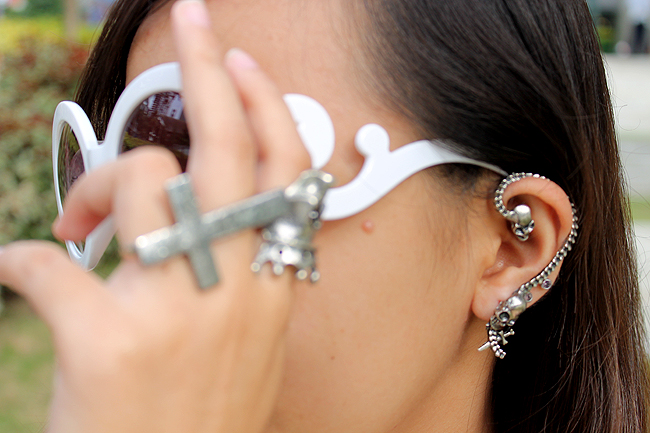The legend and the reality around Dos Hermanos Island, Pagudpud, Ilocos Norte.
Like many other beautiful and enchanting places in the Philippines and many other countries around; Dos Hermanos also has its own inspiring legends - stories that are really nice to hear first hand from the locals in a particular place. Old folks believe that Dos Hermanos is the manifistations the two brothers' promise to stay together for a lifetime - Dos Heramanos is a Spanish word that means two (dos) brothers (hermanos) or in tagalog “mag-kapatid na lalaki”. According to stories there are two young brothers who lives there, the two go to fishing for their living and they are very well known to be very helpful and kind with each other. It was told that since their parents left them early when they were kids they already learned to live and depend on each other, thus they’d promised to stay on each other's side forever.
The wind and waves on this side is really harsh especially in time of amihan or North East Monsoon and I can’t imagine how unforgiving it can be during a stormy day. Storms came in stories unexpectedly like how a storm came in a bible story in the middle of the ocean while a boat is sailing, this two brothers had gone the same trouble when they went to their usual mundane of fishing. The storm hits them and the two brothers got lost in no where. Later then, while concerened locals are busy on their search for the two, a pair of islets grew near the shore. It grows together, looks like a twin, grows with each other’s side and is staying there forever – just like the two lost boys promise =). (This tell-tale was a story told by the owner and manager of casa Consuelo while we hiked to get the best panoramic view of the Island and the Blue Lagoon)
We enjoyed the story and it ended just right when we arrived the peak, we enjoyed the scene and rested for a bit with the cold fresh morning breeze. After gaining enough energy we head back our way to Casa and had some refreshers.
Before the sun gets scorching hot and the water starts to rise in the early noon we went out and head closer to the island. Along the way is a mixture of sharp and slippery dead coral rocks in a couple of inch deep water. We roam around and enjoyed the view, then we head to the hidden bat cave at the rare side of Dos Hermanos. We were warned to be very careful and attentive on anything around us because more dangerously than slipping on the sharp rocks is being bitten by a white banded snake.
While the hike to the hill provide us the breathtaking panorama of the cove, this walk had shown us how lively the sea life around the island is. We bumped to some creatures that I have only seen there and they inspired me to learn how to swim and see the world under water, they made me think that there are more to discover in the world under the sea.
The collected seaweeds and mussels are being sold and sometimes saitil serves as their vayan for a meal. The green asian mussels according to one of the local are sold for 15-20 pesos per can (cheap considering the effort of gathering them). On the other hand the sea weed is processed into gamet which the 5-6 inch thick bundle can be sold as high as 800.00 depending on the quality. A price which is very reasonable because of the work needed to do it, a price that is definitely more to what you can gain from selling the local tahong and other local products - the reason why the locals call gamet as the Black Gold of Ilocos.




A beautiful post + great photos! :)
ReplyDeletethank you sir ^-*
DeleteI've been to Ilocos but I haven't seen that spot. Hope to visit dos hermanos on my next trip there. That was a nice story. ^_^
ReplyDeleteIt was a great spot made even better by its folklore. Try it next time your up north :)
Deletebeen to Ilocos a couple times but I've never been to that spot. I'm looking forward to seeing dos hermanos on my next trip north. Nice story by the way, I love local folklore and legends. thanks for sharing it
ReplyDeleteawwts sayangs :) ganda din dito eh relaxing.
DeleteI've been to Ilocos but I haven't seen that spot. Looking forward to visit dos hermanos on my next trip up north. I just love local folklores and legends. That was a nice story. ^_^
ReplyDeleteWow! I love how you have captured all these dramatic scenes. I love to visit Ilocos, since time immemorial, we have been planning to visit. This year talaga.
ReplyDeleteThanks Joy :)
Deletehi madam!im marlon tour guide in pagudpud,van,tricycle for hire,accomodation in saud and in blue lagoon.all rates negotiable call me at;09302845897,09067960934.
ReplyDelete